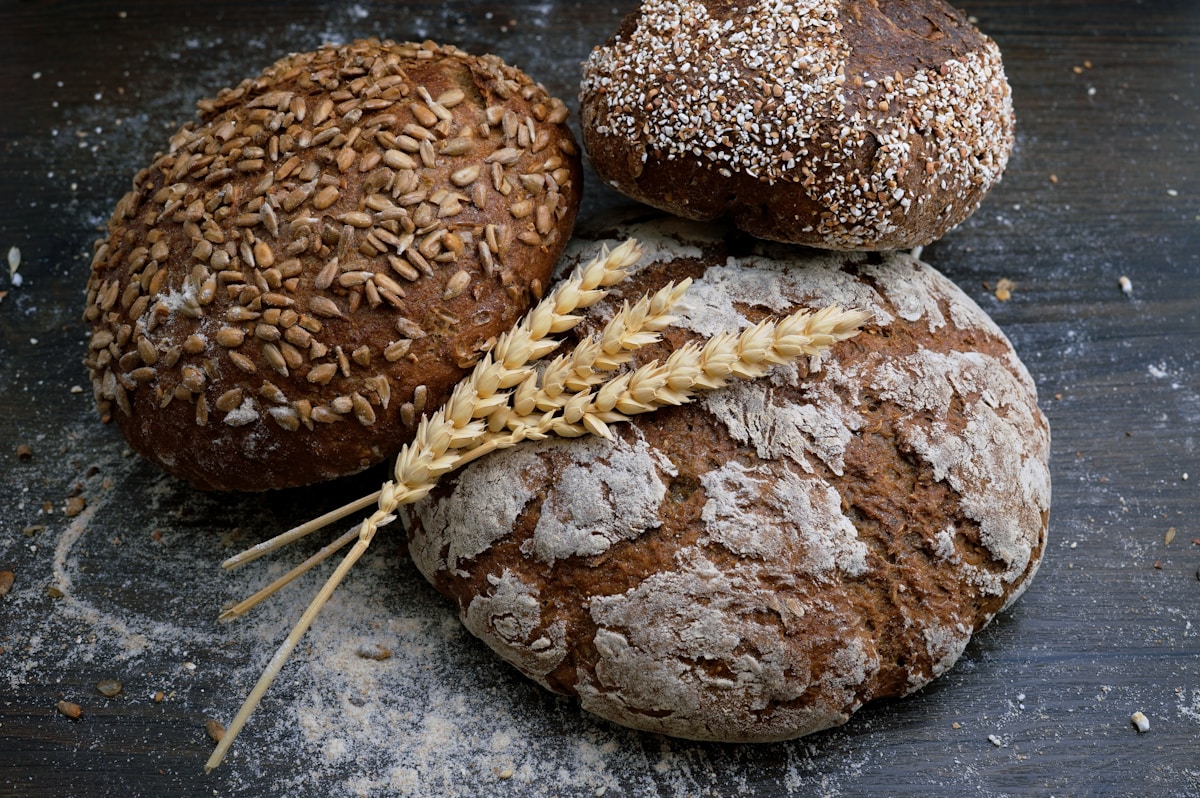America is experiencing a food revolution as families rediscover the joy of wholesome, home-prepared meals while leaders like Robert F. Kennedy Jr. expose the toxic ingredients poisoning our food supply. From artisanal bakeries to backyard gardens, Americans are reclaiming control over their nutrition and demanding transparency from food producers. This movement represents more than dietary change – it’s a return to the self-reliance and quality standards that built American prosperity.
The Renaissance of Home Baking and Cooking
Across America, families are rediscovering the therapeutic and nutritional benefits of preparing food at home. The aroma of fresh-baked bread, the satisfaction of kneading dough, and the pride of serving homemade meals to loved ones represent a return to traditions that nourished previous generations of Americans. This renaissance goes beyond nostalgia – it’s a practical response to concerns about processed food quality and a desire for authentic family experiences.
Home baking particularly exemplifies this movement toward food authenticity. When families bake their own bread, they control every ingredient – no mysterious preservatives, artificial colors, or unpronounceable chemicals. The process itself builds family bonds as parents teach children traditional skills while creating memories around shared activities.
Modern American home cooks combine traditional techniques with contemporary knowledge about nutrition and food safety. Sourdough starters passed down through generations meet scientific understanding of fermentation benefits. Cast iron cooking methods used by pioneers prove superior to modern non-stick surfaces laden with potentially harmful chemicals. This fusion of old wisdom and new knowledge produces the healthiest, most delicious American cuisine.
RFK Jr.’s Crusade Against Food Industry Toxins
Robert F. Kennedy Jr. has emerged as America’s leading voice exposing the systematic poisoning of our food supply by corporate interests more concerned with profits than public health. His fearless investigation of food additives, pesticide residues, and processing chemicals banned in other countries but freely used in America has awakened millions to the crisis in our food system.
Kennedy’s research reveals that many ingredients routine in American food products are prohibited in Europe due to health concerns. Artificial colors linked to behavioral problems in children, preservatives associated with cancer risks, and pesticides that disrupt endocrine function remain legal in American food while European regulators protect their citizens from these same substances.
The pharmaceutical industry’s influence over food regulation creates perverse incentives where companies profit from both making Americans sick through contaminated food and then treating the resulting diseases with expensive medications. Kennedy’s advocacy for clean food represents a direct challenge to this corrupt system and offers Americans a path toward genuine health independence.
Local Food Systems: Building American Food Security
The growth of farmers’ markets, community-supported agriculture, and local food networks demonstrates American entrepreneurship responding to consumer demand for clean, fresh, locally-produced food. These systems offer multiple benefits: superior nutrition from recently-harvested produce, support for local farmers and rural communities, and reduced dependence on industrial food chains vulnerable to disruption.
American families who prioritize local food sources often discover that the higher upfront costs are offset by improved health outcomes, better flavor, and reduced medical expenses. Children raised on farm-fresh produce develop sophisticated palates and positive relationships with healthy foods that last throughout their lives.
The local food movement also strengthens community bonds as families develop relationships with the farmers who grow their food. This connection to food sources builds appreciation for agriculture, seasonal eating, and environmental stewardship while supporting American farmers against corporate consolidation of food production.
Traditional Food Preparation: Nutrient Density and Flavor
Traditional American food preparation methods often prove superior to modern industrial processing in both nutritional content and flavor development. Slow-cooked stews, naturally fermented vegetables, grass-fed dairy products, and pasture-raised meats provide nutrient profiles impossible to achieve through factory farming and processing.
Fermentation, a technique used by American settlers for food preservation, creates beneficial probiotics that support digestive health and immune function. Sauerkraut, pickled vegetables, sourdough bread, and cultured dairy products offer therapeutic benefits while adding complex flavors to American cuisine.
Bone broth, a staple of traditional American cooking, provides collagen, minerals, and amino acids essential for joint health, skin quality, and digestive function. This “liquid gold” costs pennies to prepare at home but offers therapeutic benefits superior to expensive supplements marketed by the health industry.
Garden-to-Table: American Self-Reliance in Action
The explosion of home gardening represents practical American self-reliance as families take control of their food production. Victory gardens that fed America during wartime are returning as health gardens that protect families from industrial food contamination. Even apartment dwellers can grow herbs, sprouts, and microgreens that provide fresh nutrition and connection to food sources.
Children who participate in family gardens develop work ethic, patience, and understanding of natural processes often missing from modern urban upbringing. The satisfaction of eating vegetables you’ve grown yourself creates positive associations with healthy foods while teaching valuable life skills.
Home food preservation through canning, dehydrating, and freezing extends garden harvests throughout the year while building food security and reducing grocery expenses. These traditional skills, once common in American households, are being rediscovered by families seeking independence from industrial food systems.
The Future of American Food: Clean, Local, and Free
America’s food future depends on consumers demanding transparency, supporting local producers, and reclaiming traditional food preparation skills. The combination of RFK Jr.’s advocacy for regulatory reform, grassroots demand for clean food, and entrepreneurial innovation in food production creates momentum for systematic change.
Technology can support rather than replace traditional food systems through better distribution networks for local farmers, improved testing for contaminants, and educational platforms that teach food preparation skills. When technology serves human flourishing rather than corporate profits, it becomes a tool for food freedom rather than food dependence.
The American food revolution represents our values of independence, quality, and family strength. By choosing wholesome foods, supporting clean producers, and demanding transparency from regulators, Americans can create a food system worthy of our nation’s greatness. Our children deserve food that nourishes rather than poisons, and our farmers deserve markets that reward quality over quantity. The path forward requires both individual choices and policy changes – but the destination is clear: an America where wholesome food is accessible, affordable, and free from corporate contamination.






